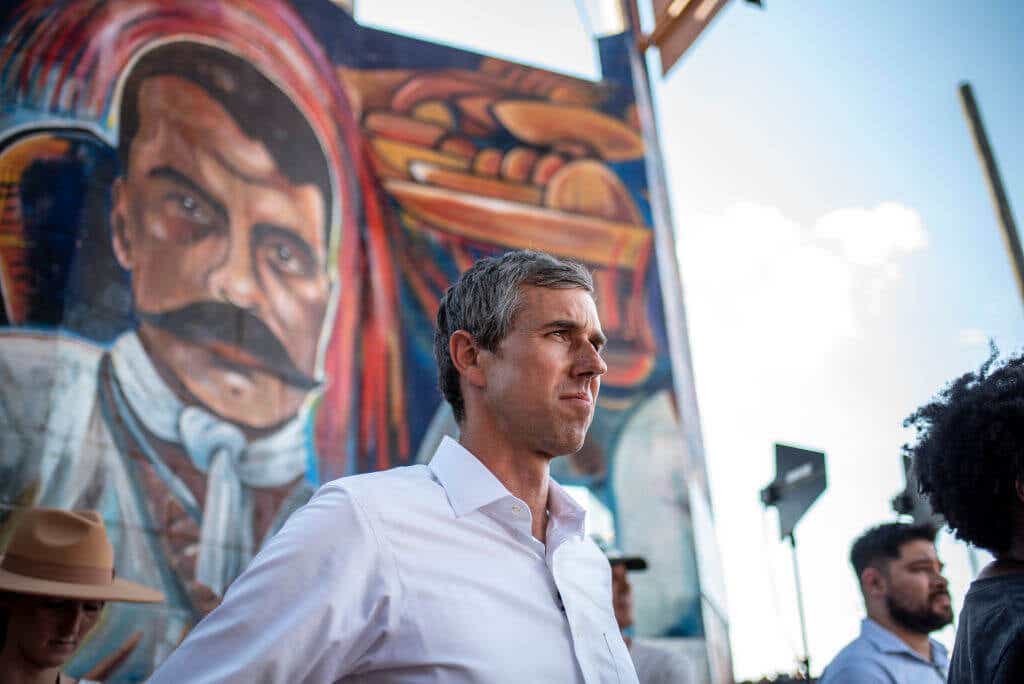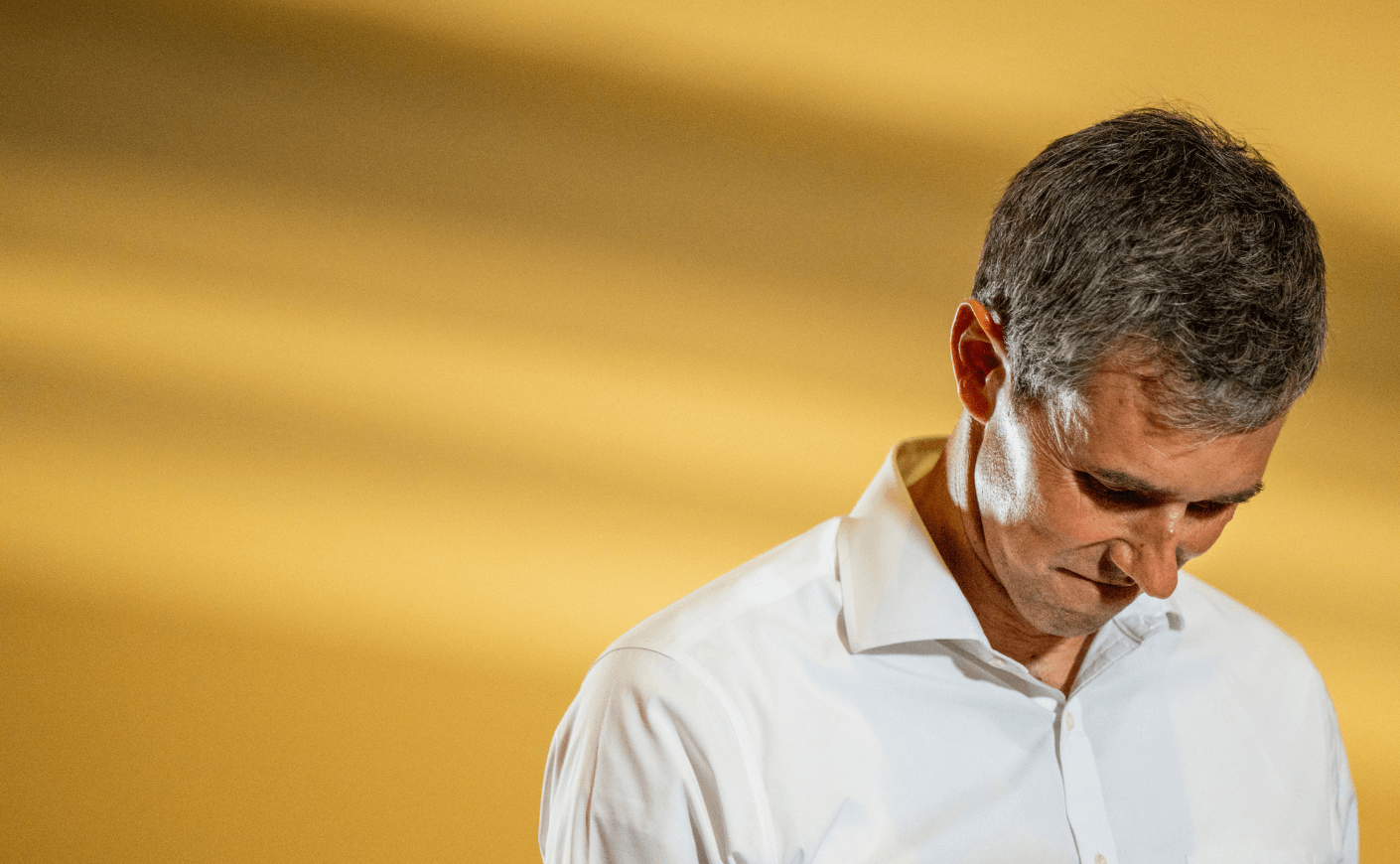In most political realities, Beto O’Rourke would be the front-runner in this month’s Texas gubernatorial election — if not assured of victory. Republican incumbent Greg Abbott has spent the last couple of years as a bystander to a gruesome spectacle that’s difficult to comprehend even when it’s listed on the page, with all of the horrors spelled out: There was the Uvalde school massacre last spring, as well as mass shootings at an El Paso Walmart in 2019 (23 dead); a high school in Santa Fe, 30 minutes south of Houston, in 2018 (10 dead); and a church in rural Sutherland Springs in 2017 (26 dead). Then there was the near collapse of the state’s power grid two years ago, where at least 150 people died and much of the state was without power and water for two or three days.
And that doesn’t take into account Texas’ usual governmental foolishness, like the decades-long struggle to fund its public schools (usually because of court mandates) or the seemingly endless quest to offset one of the highest property tax rates in the country.
But Texas political reality isn't particularly real.
So all Abbott has to do to lead in the polls — by 5 to 7 points, depending on the poll — is to accuse Democrat Beto of being Texas’ worst four-letter (or, technically seven-letter) word: a liberal. Then he can run ads showing videos of Mexicans going across the border and accuse President Biden of destroying the United States.
It’s the kind of rhetoric Abbott applies to everything with even a faint hint of modernity. He said that the power grid failure, for example, had nothing to do with the mismanagement of the deregulated electricity system, but was caused by windmills freezing (even though natural gas generates almost half of the state’s power, and its generators froze, too).
And Abbott has done all of that with great enthusiasm — almost too much, to be frank. Because, as the late and much-missed Molly Ivins once put it, “Polarizing people is a good way to win an election, and also a good way to wreck a country.”
Nevertheless, Beto doesn't seem fazed by all those obstacles, which includes the fact that no Democrat has been elected governor in 27 years (and then only for one term). He has been able to hold on to his national and hipster appeal: witness regular appearances with Stephen Colbert on late night television and an endorsement and backstage selfie with pop sensation Harry Styles during a recent Styles concert in Austin — which Beto attended.
Beto understands what he needs to do to win the election, and his campaign is well-funded, well-run, and well-focused on just that. It's taken a page from Barack Obama, who carried the four largest urban counties here twice (though he lost the state both times). It's about coalition-building, meaning young people, minorities, and Chamber of Commerce Republicans who see mass killings and power grid failures as embarrassing. There’s an intriguing Beto TV commercial, featuring a middle-aged married Anglo couple who are supporting him. The kicker? The man is about as Trumpy as they come, and she isn’t.

The catch, of course, is that two of the groups he’s counting on aren’t easy to bring to the polls. Young people are notorious for not voting (with about half of those eligible showing up to cast a vote), and Texas tightened its voting laws last year in step with several other GOP-controlled states to dilute minority voting. Meanwhile, as the New York Times has gone out of its way to point out, Democrats may no longer be able to count on Hispanic votes. There’s also a sense, that as embarrassing as Abbott may be, that he isn’t as embarrassing as Donald Trump and that GOP voters may not cross over.
The other unknown? Whether abortion will bring Beto voters out. The legislature’s anti-abortion law — apparently based on “The Ox-bow Incident” — is about as offensive as possible, with bounties for people who rat out doctors. Beto has made abortion rights a hallmark of his campaign. But are Texans as passionate about abortion rights as New Yorkers or Californians? Recent polling is vague on the subject.
Having said all of this, two things may be keeping the Beto campaign from becoming as hopeless as those of Abbott’s last two opponents, Dallas County sheriff Lupe Valdez in 2018 and state senator Wendy Davis in 2014 (who lost by 13 and 20 points, respectively). Neither method is especially scientific, but given the state of polling these days, they could mean something. The first is the yard sign overview, which has been reasonably accurate since I first noticed it in the late 1980s. I’ve looked, and have seen few Abbott yard signs, even in parts of Dallas where they should be — this may be a sign that his support isn’t deep or enthusiastic.
The second factor is a surprise voter windfall. In 2018, when Beto almost upset GOP U.S. Senator Ted Cruz, I stood in a line for early voting at a polling center in a working class section of Dallas with more young people and minorities than I’ve ever seen voting, early or otherwise. The line stretched out the door, and poll workers were clearly unprepared for that big a turnout.
So if Beto can work that kind of magic with his supporters, and if Abbott’s base isn’t especially excited, political reality may return to Texas.
But that’s a big maybe.









